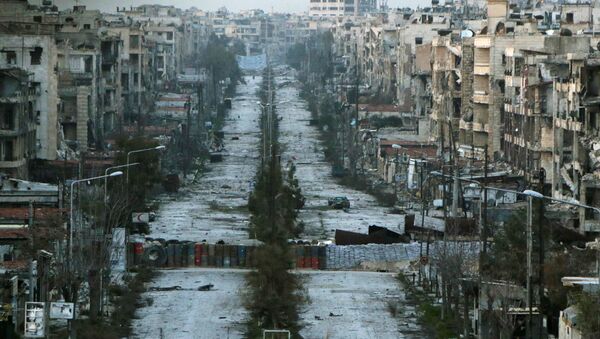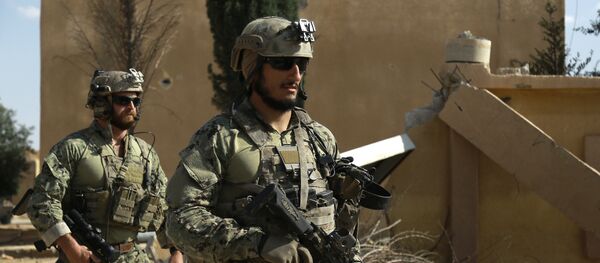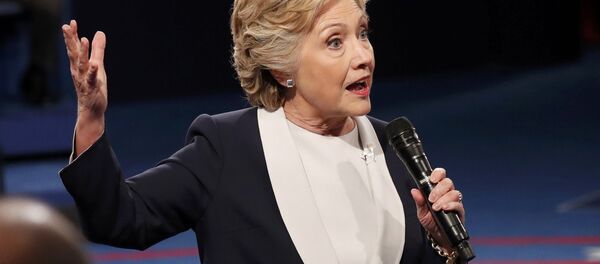Sheikh quoted Frederic C. Hof, a former US advisor on transition in Syria at the State Department in 2012, who highlighted in his opinion piece for The World Post that there is no possibility of co-operation between Washington and Moscow because the two powers don't have "common grounds."
Simultaneously, the US experts and politicians continue to push ahead with their plan of ousting Syrian President Bashar al-Assad and splitting Syria up.
"For military victory over the Islamic State to be sealed, Washington and its allies must prepare their partners in the Syrian opposition to govern liberated areas," Hof claimed in his article for The Washington Post.
About two years ago, in August 2014, Kenneth M. Pollack, a former CIA intelligence analyst and expert on Middle East politics and military affairs, offered a similar plan.
Pollack proposed building, arming and training a new Syrian opposition army to defeat both Assad and Daesh.
"Once the new army gained ground, the opposition's leaders could formally declare themselves to represent a new provisional government. The United States and its allies could then extend diplomatic recognition to the movement," the former CIA analyst underscored in his article for Foreign Affairs.
To complicate matters further, following the collapse of the US-Russian agreement on the Syrian ceasefire, the Obama administration renewed the debate over arming the so-called Syrian rebels and allowing the Persian Gulf realms to provide shoulder-fired missiles to opposition forces.
"The Saudis have always thought that the way to get the Russians to back off is what worked in Afghanistan 30 years ago — negating their air power by giving MANPADS to the Mujahedeen," an unnamed US official told Reuters on September 26.
Still, Sheikh expressed his deep concerns regarding the possibility that the US and their Gulf ally may eventually lose control over Islamist hordes in the region.
"The big question they have not yet answered is: how will they make sure that these Gulf and US supported groups would not spread, after the end of the war, into other countries, such as Iran, who are clearly on the hit list of Saudi Arabia and its allies?" Sheikh asked.
Sheikh suspects that Washington does not want Bashar al-Assad replaced "by a popularly elected leadership but by its funded armed and trained militias."
"Both Russia and Iran are very well aware of this 'terror project', its scope and the impact it would leave on the part of the world they happen to be geographically located on," he stressed, adding that in this context "Plan B" targets not only Syria, but also its neighbors and allies.
Meanwhile, on Saturday a source with knowledge of the matter told Sputnik that Russian Foreign Minister Sergey Lavrov and US State Secretary John Kerry are holding talks on the sidelines of the Syrian settlement summit in the Swiss city of Lausanne.
The summit has brought together foreign ministers from Russia, the US, Saudi Arabia, Iran, Egypt, Turkey and others.
This is the first multilateral summit on the settlement in Syria following the collapse of the ceasefire. The question remains open whether the participants would reach a compromise, thus far leaving no room for the implementation of "Plan B" in Syria.




